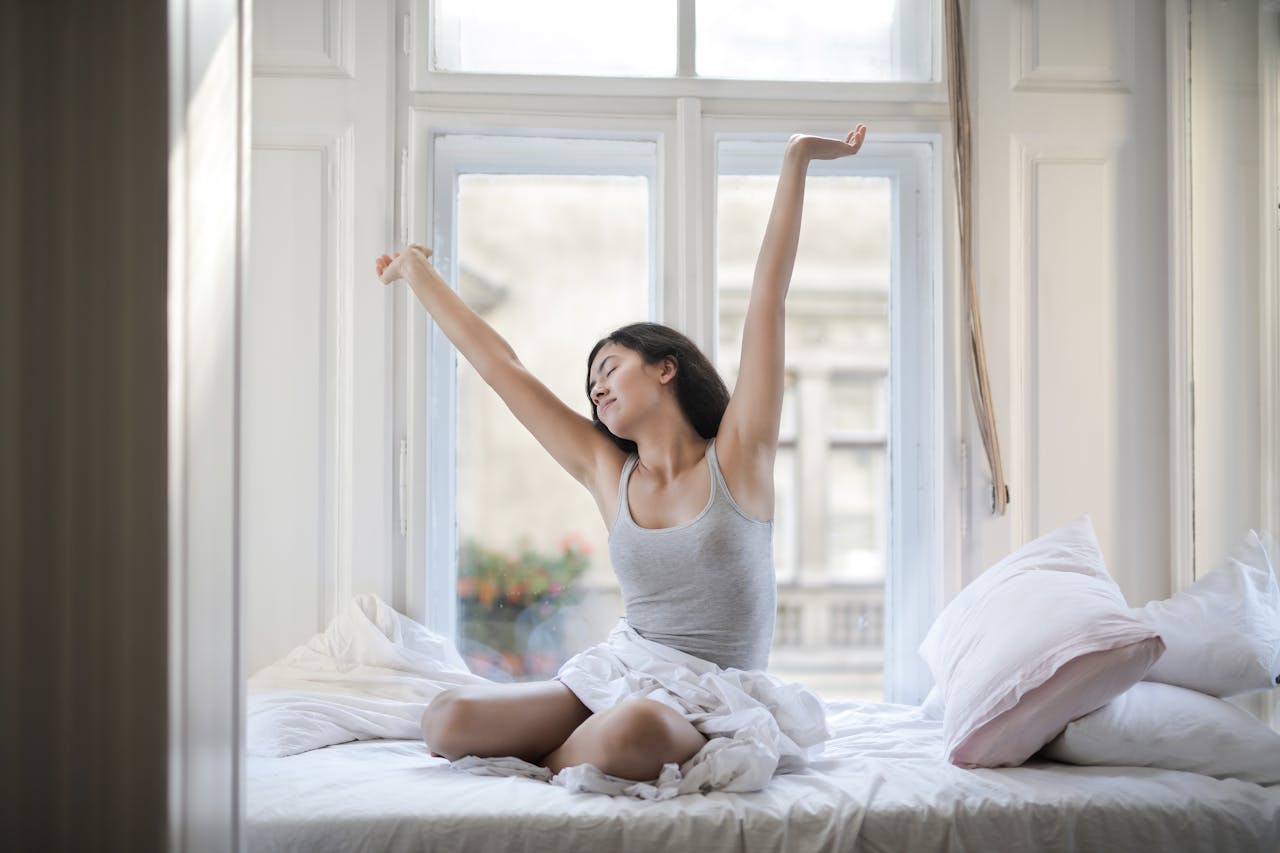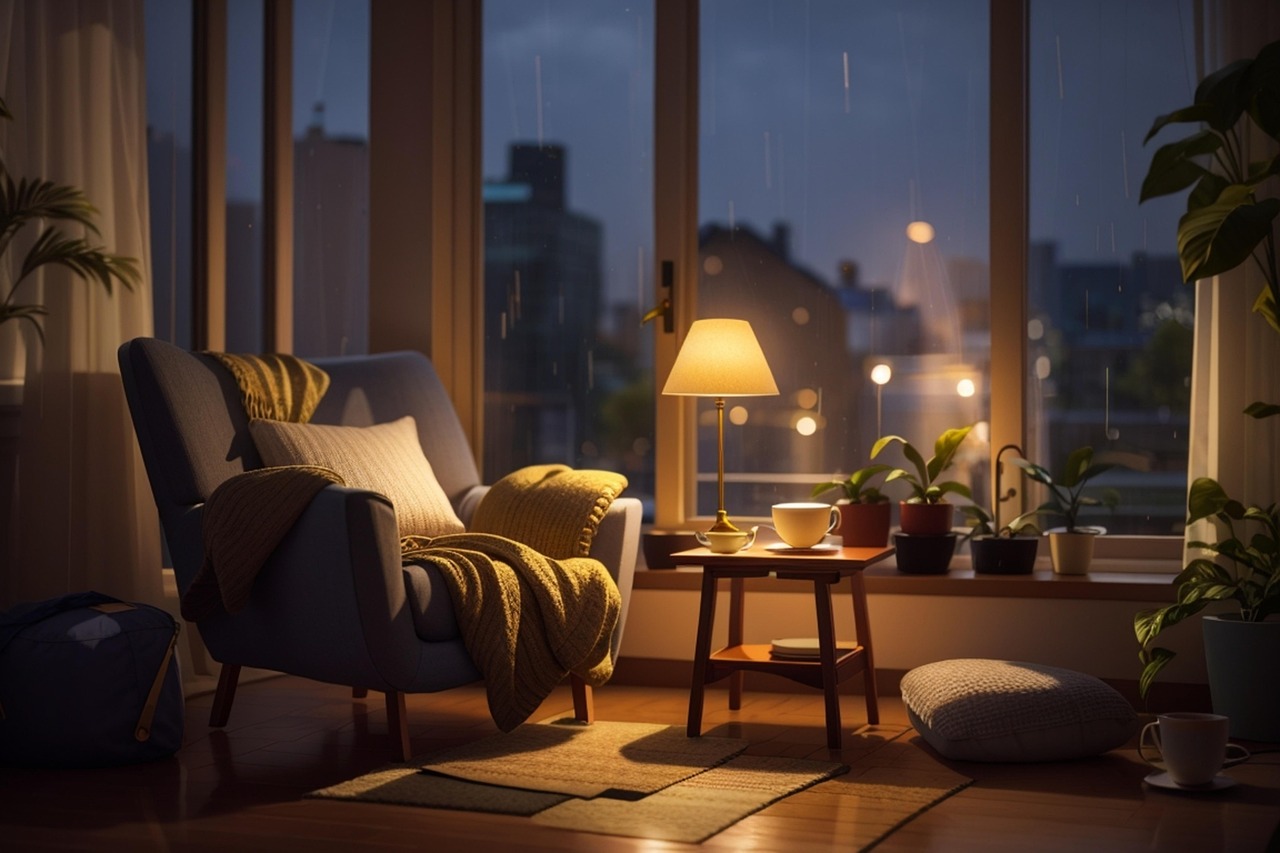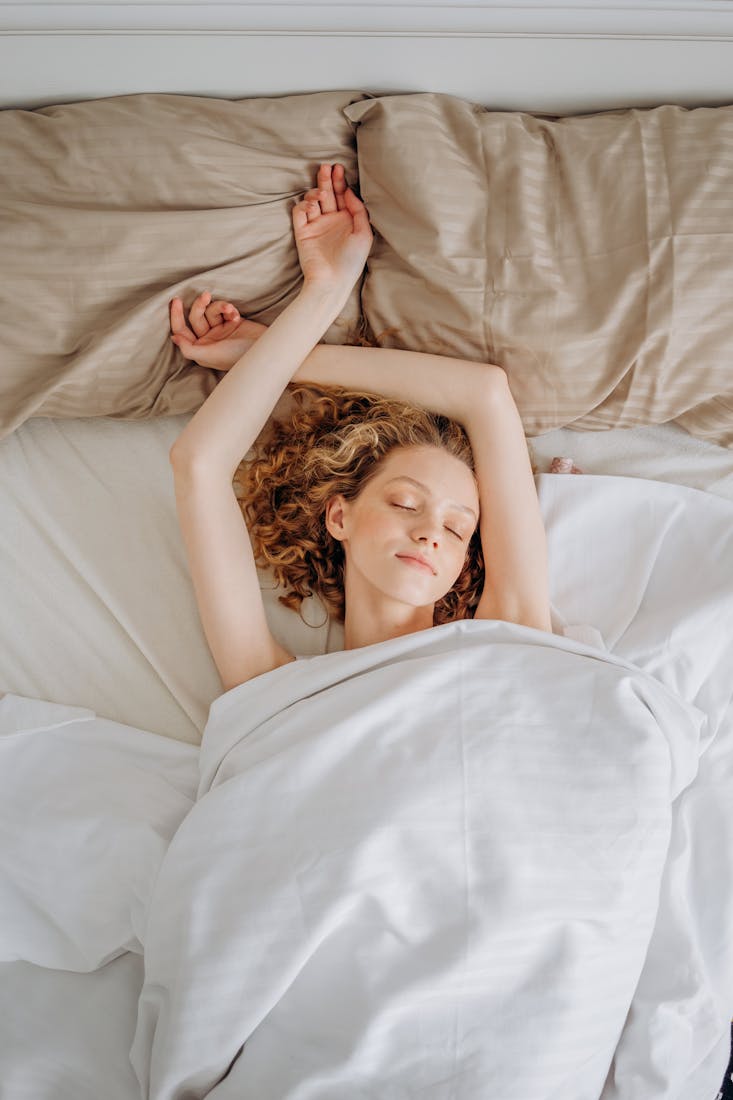Ever feel like the clock changes throw your whole week off? You’re not alone. Every spring and fall, millions of people struggle to adjust their sleep, focus, and mood after the time shift. The grogginess, the early darkness, the “why am I this tired?” feeling – it’s all real, and science backs it up.
With Daylight Saving Time returning this weekend, it’s the perfect moment to understand what’s really happening to your body – and how to help it adapt smoothly.
How It Started
The whole idea of changing our clocks to “make better use of daylight” isn’t new – it actually dates back to the late 19th and early 20th centuries. During both World Wars, countries adopted Daylight Saving Time (DST) to save energy and extend daylight into the evening hours. It was practical back then – fewer lamps burning meant less fuel wasted.
Over the decades, this twice-a-year ritual – “spring forward” and “fall back” – spread around the world. Many countries still follow it today, though some have abandoned it entirely after realizing that the costs might outweigh the benefits.
How It Is Now
Fast forward to today, and the story has changed. Most of us aren’t lighting kerosene lamps anymore – but we are feeling the effects of moving the clock.
According to a 2019 survey from the American Academy of Sleep Medicine (AASM), more than half of Americans (55%) said they felt extremely or somewhat tired after the spring-forward change — including 14% who felt “extremely tired.”
Another AASM survey, from 2020, found that 63% of Americans want to eliminate the seasonal time change altogether in favor of one fixed, year-round time. That includes 38% who “strongly support” the idea.
So, the general mood seems clear: people are tired of feeling tired.
And there’s science behind that fatigue. Researchers have linked these time jumps to more than just grogginess – there’s evidence of short-term spikes in heart attacks, car accidents, and sleep loss in the days following the change.
And yes, this is backed by data – here is what I found:
- A comprehensive review in The Journal of Clinical Sleep Medicine found that switching to DST is associated with increased cardiovascular problems, especially in the week after the spring transition.
- The American Heart Association has reported that the Monday after the shift often brings a bump in heart attacks — likely because of sleep deprivation and circadian disruption.
- Johns Hopkins Bloomberg School of Public Health notes that research points to an increase in health and safety risks – from workplace injuries to mood changes – after each clock change.
So while this tradition might have made sense in the past, today’s data and public sentiment both suggest it’s doing more harm than good.
What the Science Says About Sleep and Fatigue
Our bodies are wired to follow light – literally. We operate on a roughly 24-hour internal rhythm called the circadian rhythm, which controls when we feel awake, when we get sleepy, and how alert we are throughout the day.
When the clocks shift forward or back, our internal clocks don’t automatically reset. That’s why experts sometimes call this disruption “social jet lag.” You might be technically on time, but your body still thinks it’s the old hour.
Studies show that after we “spring forward,” people tend to:
- Sleep less
- Feel sluggish or moody
- Take longer to fall asleep at night
- Experience slower reaction times and reduced focus
Harvard Health notes that on average, people lose about 40 minutes of sleep on the Monday after the spring shift.
And while many bounce back in a few days, not everyone does. For people with underlying sleep problems, older adults, or shift workers, even small disruptions can snowball.
Health and Safety Effects
For most of us, the time change feels like a mild annoyance – maybe a few groggy mornings and extra coffee runs. But for others, the shift has more serious implications.
Research has linked the spring change to:
- A modest but measurable increase in heart attacks and strokes in the days following the time change (source cited above – The Journal of Clinical Sleep Medicine)
- A rise in car accidents, especially fatal ones, immediately after the shift (Harvard Health cited above)
- Temporary spikes in mental health challenges, workplace injuries, and immune-related issues (National Library of Medicine)
However, not all researchers agree on how big these risks are. A Mayo Clinic analysis, for instance, found only a minimal effect on heart health for most healthy individuals.
In short: for healthy people, the risks are small – but for vulnerable groups, they’re worth paying attention to. And from a productivity and safety standpoint, even “small” disruptions can have real-world effects.
And I see this clearly in my family. I naturally adapt to time changes – but for my mom (who has a few health issues) it is very hard – each time!
Why It Affects Everyone Differently
Ever noticed that your body starts adjusting before the clocks change – like you naturally want to go to bed a bit earlier or wake up earlier? You’re not imagining it.
As I already mentioned above, I am like that – and have always been.
This happens because of seasonal changes in daylight and something called your chronotype – basically, your natural preference for waking up early or staying up late.
Research shows that:
- As days lengthen or shorten, our sleep and wake times shift slightly too. (National Library of Medicine)
- “Morning types” (early birds) and “evening types” (night owls) react differently to time shifts. One review found that evening types tend to struggle more with the spring-forward change. (the same study)
- Adolescents, in particular, have later chronotypes and often feel the DST change more intensely. (Wikipedia)
So if you’re one of those people whose body naturally starts signaling “sleep earlier” before the change – congrats, you’re actually tuning in to your biological cues. It’s a good thing!
As a special note, for me, when the days are shorter, the productivity is higher – I always finish what I want to do sooner and more rapidly.
How to Cope With Daylight Changes (and Actually Feel Okay)
Let’s be honest – losing or gaining an hour might not sound like a big deal, but for many of us, it’s enough to throw off our mood, focus, and energy. The good news? There are science-backed ways to help your body adjust more easily.
Here’s what sleep specialists and psychologists recommend — and why these small tweaks work.
1. Start Preparing a Few Days Early
Think of your body as a clock that doesn’t like surprises. Sleep experts suggest easing into the time change instead of flipping your schedule overnight.
- Go to bed 10–15 minutes earlier (or later) each night for 3–5 days before the switch. This gradual change gives your body a head start. Harvard Health Publishing (the article cited above) – and, basically, every specialist out there – recommends small nightly shifts instead of trying to “catch up” after the fact.
- Get bright morning light as soon as you wake up. Light is the single strongest cue for resetting your circadian rhythm – it tells your brain it’s time to be alert. Stepping outside, even for 10–15 minutes, is enough. Research (see the first link in the previous section of this article) confirms that morning sunlight exposure helps your internal clock adjust faster.
- Dim the lights at night. In the evening, switch to warmer lighting or use “night mode” on your devices. Blue light delays melatonin (the hormone that helps you fall asleep). This small habit can make a big difference around transition weeks.
2. Keep Your Routine Consistent
Consistency is everything when it comes to sleep. Try to wake up and go to bed at the same time every day – even on weekends.
It might sound boring, but studies show irregular sleep patterns increase the risk of fatigue, mood swings, and even cardiovascular issues.
If your routine is predictable, your body can adapt more smoothly when the clock shifts.
Again, yes, I know this may be easier said than done!
3. Make Sleep Hygiene a Priority
Good sleep hygiene isn’t just about bedtime – it’s about your environment and daily habits. Around the time change, pay extra attention to:
- Temperature: Keep your room slightly cool (around 18–20°C / 65–68°F).
- Noise: Use white noise if needed. (I prefer complete silence)
- Darkness: Consider blackout curtains if early sunrise or late daylight disrupts your rhythm.
- Caffeine: Cut it off by mid-afternoon — caffeine can linger in your system for hours.
- Alcohol: Skip the nightcap. It might make you sleepy, but it fragments your sleep quality.
I am recommending you my previous article with the complete nighttime routine that will help you live longer and healthier.
4. On the Day of the Change: Go Easy on Yourself
If you feel foggy or irritable for a few days, you’re not alone and it’s completely normal.
After the spring-forward shift, sleep debt tends to peak on Monday and Tuesday. You might feel less focused or more emotional than usual.
Here’s what helps:
- Get outside early. Natural light helps your brain reset to the “new” morning faster.
- Take short naps (20–30 minutes max) if you’re dragging. Just don’t nap too late in the day or for too long – it can make it harder to sleep that night. I saw numerous articles stating that short naps can safely offset sleepiness without interfering with nighttime rest.
- Stay hydrated. Fatigue can worsen with dehydration.
- Be cautious when driving. Reaction times dip slightly after clock changes, according to both Harvard Health and Johns Hopkins Public Health. If you’re sleepy, skip long drives or operate machinery.
If you have a history of heart issues, consider giving yourself an easier morning that first Monday – evidence suggests the risk of heart attacks rises slightly that day. (National Library of Medicine, cited above)
5. Use Lifestyle Tweaks to Support Recovery
Adjusting isn’t just about bedtime – it’s about your entire rhythm.
Here’s what psychologists and chronobiologists recommend:
- Eat earlier in the evening. Heavy dinners delay digestion and sleep onset.
- Avoid overloading your to-do list right after the shift. Your brain and body need a bit of grace.
- Move your body during the day. Even light exercise like walking improves sleep quality. Just avoid intense workouts right before bed.
- Keep caffeine strategic. It’s fine to have your morning coffee – just try to stop after 2 p.m. to avoid disrupting your melatonin production.
Why Some People Adapt Naturally
Have you noticed that you start feeling sleepy earlier (or wake up earlier) in the weeks before the clock changes? You’re not alone (nor am I) – and there’s real science behind it.
This natural “pre-adjustment” happens because of seasonal daylight cues and your chronotype – basically, your internal clock type.
Studies show that as days grow longer or shorter, people’s bedtimes and wake times shift by a few minutes each week, even before the official time change. (National Library of Medicine linked above) This happens to me – the month before each change, my body adapts naturally. I learned, since I was a child, to listen to my body – and it helps me with the time changes.
If you’re a morning person, you may find it easier to adapt to spring-forward (you’re naturally ahead). Night owls, on the other hand, tend to struggle more because their bodies prefer later schedules. (see the article on Wikipedia linked above)
Some people are just more sensitive to light cues – especially those who get natural morning sunlight regularly. Early light helps your body’s rhythm shift gently, which may explain why your sleep starts changing before the clock does.
Simply said, if your body naturally starts signaling earlier sleep or wake times, that’s a good sign your circadian rhythm is in tune with daylight. You can lean into it – go to bed when you feel sleepy instead of forcing your old schedule.
Long-Term Resilience: Making Time Shifts Easier Every Year
You can’t control when the clocks move (yet!), but you can train your body to handle it better.
Here’s how:
- Stick to regular sleep and wake times year-round – even on weekends.
- Spend time outdoors daily, especially in the morning. Natural light keeps your internal clock synced.
- Wind down consistently. Have a bedtime ritual – reading, gentle stretching, or journaling – so your body knows it’s time to rest.
- Limit “social jet lag.” That’s the gap between your weekday and weekend schedules. Keeping that gap small helps your body stay steady.
- If you travel or work shifts, use the same strategies: gradual bedtime changes, planned light exposure, and, if advised by a doctor, short-term melatonin use.
Over time, your system becomes more flexible – so each clock change feels less like a full-body shock.
How long does it take to adjust to daylight saving time?
Most people need 3–5 days for their body clock to stabilize, according to the American Academy of Sleep Medicine.
Following these science-backed strategies can shorten that period and help you feel fully recharged faster.
A Quick Word of Caution / Disclaimer
Most of these changes are harmless for healthy adults, but if you have heart disease, sleep apnea, depression, or major fatigue that lasts beyond a week, talk to a doctor or sleep specialist.
Research shows that certain groups – especially those with cardiovascular risks – are more vulnerable during the “spring forward” period.
If your symptoms include ongoing insomnia, anxiety, or physical fatigue, it’s worth checking in with a professional to rule out underlying sleep disorders or seasonal affective patterns.
As a Conclusion
Daylight Saving Time started as a clever way to save fuel. A century later, it’s become a global sleep experiment we all participate in – willingly or not.
The evidence is clear: even a one-hour shift can throw off your rhythm, your mood, and, for some, your health. But with a little planning, awareness, and sunlight, you can make the transition much smoother.
And if your body already starts adjusting before the clock does? That’s your inner timekeeper saying, “I’ve got this.” Listen to it – it’s usually right.
Read my other articles that will help you live a healthier, longer life:
- Scientists Reveal the Unexpected Longevity Habit That Costs Nothing
- Scientists Say This Overlooked Habit Could Add Years to Your Life
- Scientists Say People With This Mindset Are Far More Likely to Reach Age 90+
- Add Decades, Not Just Years: 8 Habits That Could Add 20–25 Years to Your Life (Backed by a Massive Study)
- Want a Longer, Happier Life? Scientists Say This 1-Hour Habit Could Be the Key
- Want to Live Longer? Studies Say These Mental Habits May Help (No Sweat Required)
- Eat Earlier, Live Longer? What a New Study Says About Breakfast Timing, Aging, and Longevity
- Simple daily habits for a healthier mind
- How to De-Clutter Your Mind, Backed by Science
- The Personality Traits That Can Help You Live Longer (and Be Happier)
- How to Build Real Self-Esteem That Lasts (Backed by Science, Not Buzzwords)
- 17 Signs You Are Happier Than You Think
- 11 Signs You Are More Intelligent Than You Think
- Things People With High Self-Esteem Rarely Do







